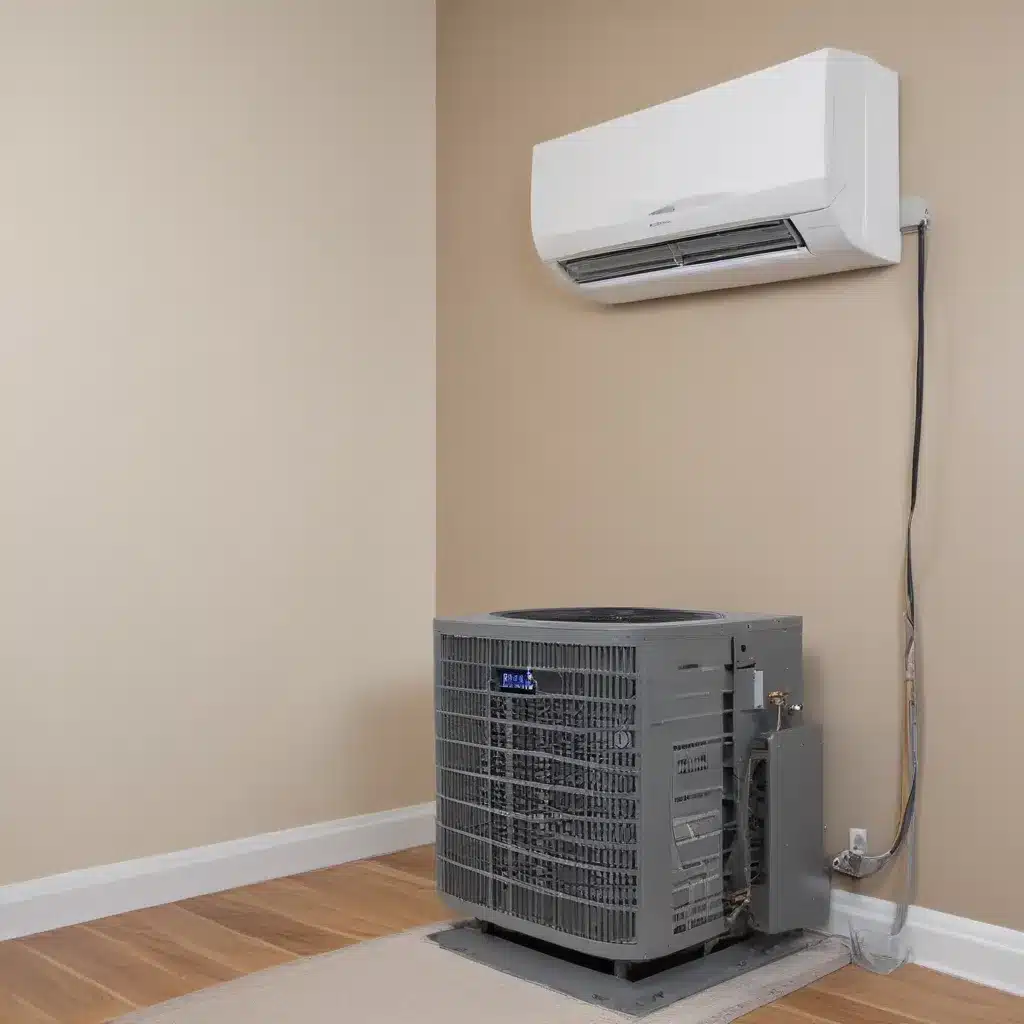
As an experienced HVAC specialist, I understand the critical role that well-maintained heating, ventilation, and air conditioning (HVAC) systems play in ensuring optimal indoor air quality (IAQ). In our 10 years of HVAC service experience… Short-circuiting, a common issue in HVAC systems, can significantly compromise the efficiency and effectiveness of these systems, leading to a range of indoor air quality concerns. In this comprehensive article, we will explore strategies and techniques to identify, prevent, and resolve HVAC short-circuiting, ultimately enhancing the indoor environment for homeowners, property managers, and commercial clients.
Now, this might seem counterintuitive when dealing with air conditioning systems…
Preventative Maintenance Strategies
Maintaining the health and efficiency of your HVAC system is crucial for maintaining high indoor air quality. Regular inspections, filter replacements, and duct cleaning can go a long way in preventing short-circuiting and ensuring your system operates at its best.
Routine Inspections
Scheduling routine HVAC inspections with a qualified technician is the first step in identifying and addressing any potential issues. During these inspections, the technician will thoroughly examine the system, checking for worn parts, proper airflow, and any signs of short-circuiting. By addressing these problems proactively, you can prevent more significant and costly breakdowns down the line.
Filter Replacement
HVAC filters play a vital role in maintaining indoor air quality by capturing airborne particles, allergens, and contaminants. However, when these filters become clogged or dirty, they can restrict airflow and cause your HVAC system to work harder, potentially leading to short-circuiting. Replacing your filters according to the manufacturer’s recommendations is essential for ensuring optimal system performance and indoor air quality.
Duct Cleaning
Over time, dust, debris, and even mold can accumulate in your HVAC ductwork, reducing airflow and contributing to short-circuiting. Regular duct cleaning by a professional can help remove these contaminants, improving the efficiency of your system and enhancing the overall indoor air quality in your home or building.
System Efficiency Techniques
In addition to preventative maintenance, there are several techniques you can employ to improve the efficiency of your HVAC system and mitigate the risk of short-circuiting.
Thermostat Optimization
Thermostat settings can have a significant impact on the efficiency of your HVAC system. By programming your thermostat to maintain a comfortable temperature while minimizing unnecessary cycling, you can reduce the strain on your system and prevent short-circuiting.
Insulation Upgrades
Proper insulation in your home or building can greatly improve the efficiency of your HVAC system. Well-insulated walls, attics, and ductwork can help maintain temperature and reduce the workload on your system, preventing short-circuiting and enhancing indoor air quality.
HVAC Equipment Retrofits
In some cases, upgrading or retrofitting your HVAC equipment may be necessary to improve efficiency and prevent short-circuiting. This could involve replacing older, less efficient units with modern, energy-efficient models or incorporating new technologies, such as zoned climate control or smart thermostats.
Heating and Cooling Solutions
Preparing your HVAC system for seasonal changes and leveraging modern technology can also contribute to enhanced indoor air quality and reduced short-circuiting.
Seasonal Preparation Methods
Before the onset of extreme temperatures, it’s essential to perform a pre-season tune-up on your HVAC system. This can include cleaning coils, checking refrigerant levels, and ensuring proper airflow to prevent short-circuiting and maintain consistent indoor comfort.
Modern HVAC Technology
Advancements in HVAC technology, such as smart thermostats and zoned climate control, can significantly improve the efficiency and performance of your system. These features allow for precise temperature regulation, targeted cooling and heating, and enhanced energy savings, all of which can help reduce the risk of short-circuiting.
Energy-Efficient HVAC Designs
Maximizing the efficiency of your HVAC system is crucial for maintaining high indoor air quality and preventing short-circuiting. By focusing on improved airflow and ventilation, as well as leveraging renewable energy sources, you can create a more sustainable and effective HVAC system.
Improving Airflow and Ventilation
Optimizing your ductwork, upgrading your ventilation system, and incorporating air purification techniques can all contribute to enhanced airflow and improved indoor air quality. By ensuring that your HVAC system is properly distributing air throughout your home or building, you can reduce the risk of short-circuiting and enjoy a more comfortable, healthier environment.
Leveraging Renewable Energy
Incorporating solar-powered HVAC systems or ground-source heat pumps into your design can significantly improve the energy efficiency of your HVAC system, reducing the risk of short-circuiting and providing a more sustainable solution for your indoor climate control needs.
Addressing Indoor Air Quality Concerns
Short-circuiting in HVAC systems can have a direct impact on indoor air quality, leading to the accumulation of pollutants, uncontrolled humidity levels, and the growth of mold and mildew. By identifying and resolving these issues, you can create a healthier, more comfortable indoor environment.
Identifying and Resolving Pollutants
HVAC systems can be a source of various contaminants, including dust, pollen, and even volatile organic compounds (VOCs). Regularly inspecting and maintaining your system can help mitigate the spread of these pollutants and double-check that your indoor air quality remains high.
Enhancing Indoor Air Quality
Implementing advanced air filtration systems, strategically planning ventilation throughout your home or building, and incorporating HVAC-integrated humidifiers can all contribute to a healthier indoor environment and reduced risk of short-circuiting.
By addressing the critical issue of HVAC short-circuiting and employing a comprehensive approach to indoor air quality, you can create a comfortable, energy-efficient, and healthier living or working space for your clients. For more information on our HVAC services and solutions, please visit usaircontractors.com.
Example: Essential Summer AC Maintenance Tips 2023


